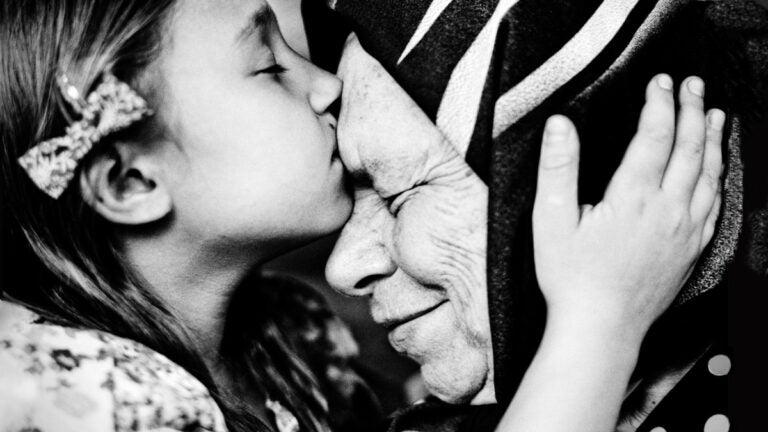
Neuroscientists Track the Power of Gratitude
Researchers measure the power of empathy in social behavior.
The Holocaust brings to mind terrible tragedy, but the genocide also drove men and women to act selflessly to help others.These stories of courage make Holocaust survivors an important and unique resource on an unexpected research topic: thankfulness.
“With the Holocaust, we only typically associate the awful things. But when you listen to the survivors, you also hear stories of incredible virtue and gratitude for the help they received,” says Glenn Fox PhD ’14, a postdoctoral researcher at the Brain and Creativity Institute at USC (BCI). Fox led a study that explored what happens in the brain when people experience gratitude, and he drew on testimonies from the USC Shoah Foundation — The Institute for Visual History and Education for help.
The USC brain researchers recruited 23 study participants, most of them in their 20s, who had no personal connections to the Holocaust. After showing participants documentaries about the Holocaust, researchers shared 50 stories from the testimonies with them. (A sample: “You have been sick for weeks, and a prisoner who is a doctor finds medicine and saves your life.”) The participants imagined themselves in the situations and rated the depth of their gratitude in each one.
Using an MRI scanner, the researchers mapped circuitry in the brain that were activated when the participants felt grateful. Activated areas include those responsible for feelings of reward and fairness.
More researchers are starting to explore gratitude. Early research links the emotion to better psychological and physical health, improved sleep, greater empathy and friendships, and more. Yet it remains an under-studied subject, says the study’s senior author, Antonio Damasio, co-director of the BCI and professor of psychology and neurology at USC Dornsife College of Letters, Arts and Sciences.
“There has not been much attention given to the emotion of gratitude,” Damasio says, “and yet it is extremely important in social behavior.”
